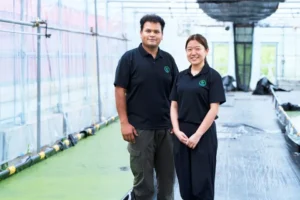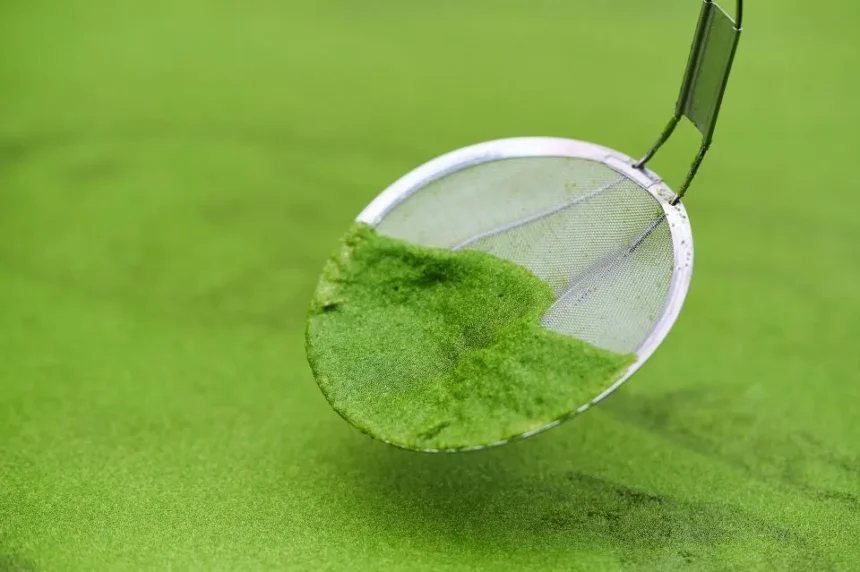NewzVille Exclusive
Wolffia, a high-protein, fast-growing aquatic plant has recently been garnering the plates worldwide as a potential miracle food. Also known as watermeal, Wolffia is a rootless, free-floating species of duckweed found mainly in Southeast Asia.
Today, this special plant enjoys rising expectations as an alternative protein source to meat and soybeans.

Floatmeal Co., Ltd., a startup company headquartered in Hokkaido, Japan’s largest food production region, promote duckweed as a solution to the global protein crisis.
Wolffia plants can double in quantity daily under the right conditions of temperature, water, and microorganism population.
Its environmental impact is remarkably low, as it uses only 1/230 the water and 1/63 the land required for soybean cultivation.
Protein content of Wolffia, on the other hand, is high: 36 to 40% compared with about 34% for soybeans and 28% for broccoli.
It is also rich in vitamins, minerals, and dietary fiber. All these attributes make wolffia a focus of attention as a potential superfood to replace conventional protein sources.
Wolffia production not only does have a low environmental impact, but the plant itself absorbs carbon dioxide. Thus, an increase in production could also help alleviate factors contributing to climate change.

Moana Kitamura, representative director of Floatmeal, explains: “Wolffia grows naturally in freshwater in regions like Southeast Asia, coexisting with various microorganisms in the natural world.”
“In order to develop it as a food source, we are exploring effective cultivation methods in our laboratory greenhouse. This includes researching microorganisms that can accelerate wolffia’s growth rate and enhance its nutritional value”, she says.
Floatmeal was established in 25 May 2023 when Kitamura, who was studying the impact of global warming on marine ecosystems at Hokkaido University, met Sajjad Kamal Shuvro, a student from Bangladesh studying microbiology and environmental science at the university’s graduate school.
The technology of using microorganisms in the cultivation of Wolffia originated from pioneering research conducted by Hokkaido University’s Morikawa Laboratory, with which Shuvro was affiliated.





